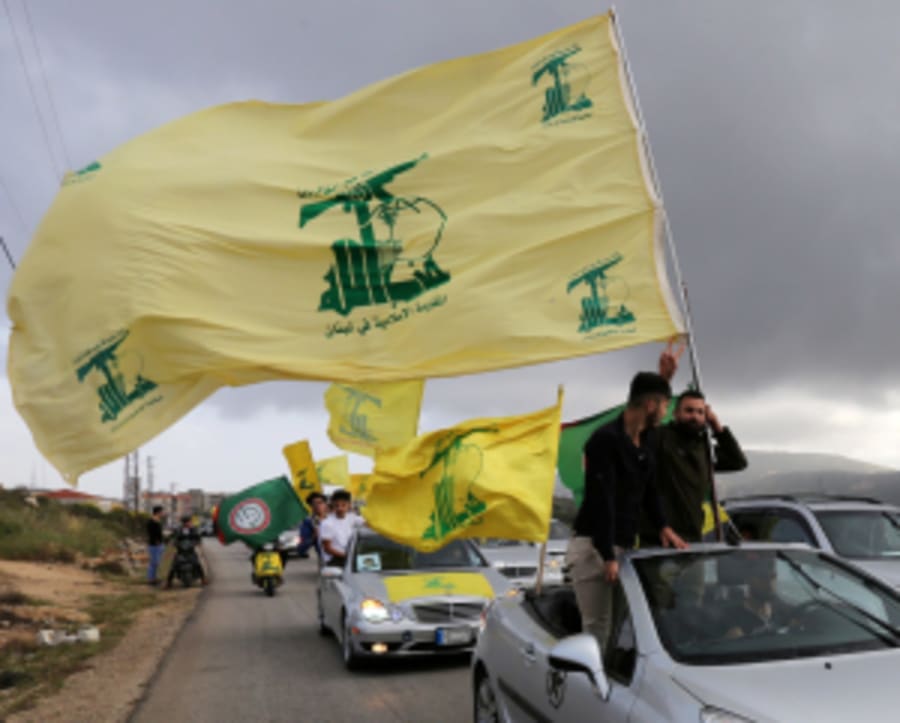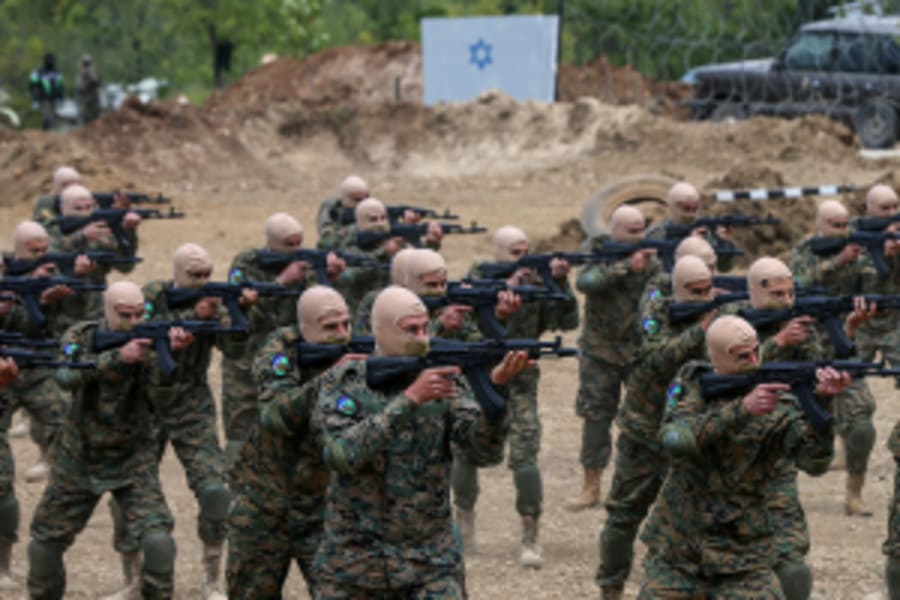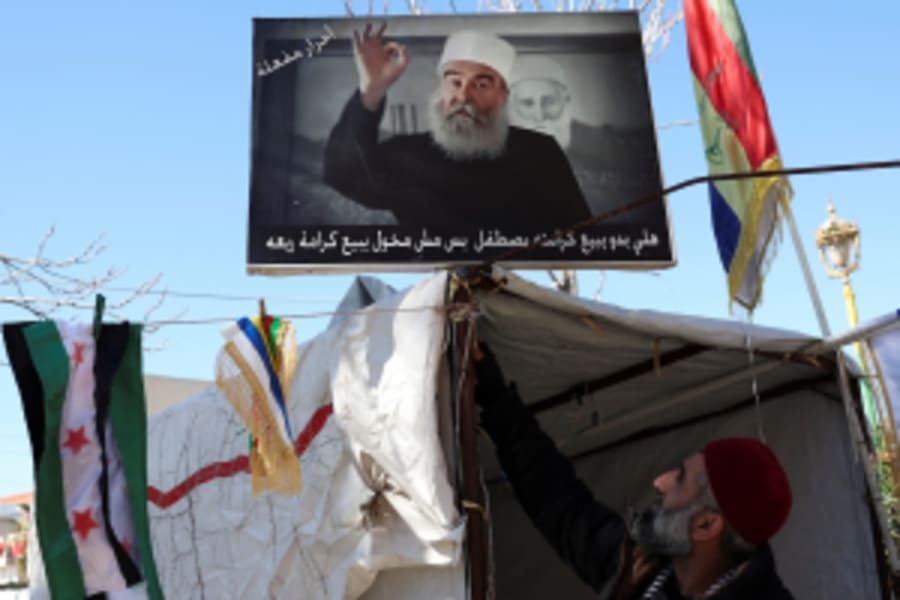UN Resolution 1701: What is it and how does it relate to Israel's conflict with Hezbollah?

UN Security Council Resolution 1701 was proposed as a way to end the Second Lebanon War in 2006
A massive rocket barrage and a Hezbollah raid on Israel’s northern border in July 2006 led to the 34-day-long Lebanon War, commonly referred to as the Second Lebanon War in Israel.
The First Lebanon War, or the 1982 Lebanon War, was a low-intensity conflict until Israel's final withdrawal from southern Lebanon in 2000.
In the 2006 attack, Hezbollah fired rockets at northern Israeli towns, while a small force fired anti-tank missiles at a group of IDF soldiers patrolling the border in armored Humvees. Two Israeli soldiers were eliminated in the attack while injuring seven others. Another two soldiers were captured by Hezbollah fighters and abducted to Lebanon.
In response to the attack, Israel struck both Hezbollah and Lebanese sites while Israeli ground troops entered southern Lebanon and the Israeli Navy imposed a naval blockade. The war showed the difficulty of fighting against Hezbollah which, like Hamas, used the strategy of embedding its terror infrastructure within civilian infrastructure, and using underground tunnels to hide its fighters and perpetrate surprise attacks.
The fighting ended after the passage of UN Security Council Resolution 1701. The resolution was approved by the governments of Israel and Lebanon and expanded the authority of the United Nations' Interim Force in Lebanon (UNIFIL), which remains in southern Lebanon to this day.
Resolution 1701 calls for several things:
“The immediate cessation by Hizbollah of all attacks and the immediate cessation by Israel of all offensive military operations.”
The deployment of Lebanese Armed Forces (LAF) together with UNIFIL forces into southern Lebanon between the Blue Line and the Litani River following the retreat of both Hezbollah and IDF forces from the area.
There are to be no weapons nor armed forces between the Blue Line and the Litani River except the LAF and the UNIFIL.
The disarmament of all armed groups in Lebanon except for the LAF.
No foreign forces in Lebanon without the consent of its government.
No sales or supply of arms or related material to any groups except as authorized by the Lebanese government.
The Israeli government must give a map of all known landmine locations in southern Lebanon to UNIFIL.
A major focus of Resolution 1701 was the disarmament of Hezbollah and its retreat from southern Lebanon, as well as the retreat of Israeli troops.
Of those two demands, only one has been achieved – the one that Israel was responsible for.
Hezbollah has not been disarmed, nor has it retreated from the territory of southern Lebanon which is only to be patrolled by the LAF together with UNIFIL.
Since 2006, Israel has repeatedly claimed that UNIFIL is not fulfilling its expanded role, and has not been enforcing the terms of the UN Security Council’s resolution.
Moreover, both the Lebanese government and UNIFIL have stated they will neither attempt to disarm Hezbollah nor remove it from the territory between the Blue Line and the Litani River.
Additionally, neither the Lebanese government nor the UN has attempted to prevent the delivery of weapons to Hezbollah, another demand of Resolution 1701. Only Israel has attempted to do so through surgical strikes, primarily on Syrian sites used for receiving or transferring weapons from Iran.
The Lebanese government, despite not upholding any of its obligations under Resolution 1701, regularly accuses Israel of violating the resolution by conducting airstrikes in Lebanese territory. When Israel conducts such airstrikes, it is generally responding to Hezbollah aggression, or attempting to stop weapons transfers to Hezbollah, which is the responsibility of the Lebanese government.
In fact, far from attempting to disarm Hezbollah, the LAF often cooperates with Hezbollah. The LAF notifies Hezbollah when it intends to conduct patrols or bring dignitaries to the border area. Sometimes the two groups patrol together. Israel has documented cases of Hezbollah fighters wearing LAF uniforms. The LAF has also prevented the UNIFIL from carrying out supervisory tasks in southern Lebanon.
Since the passage of Resolution 1701, Hezbollah has only further increased its control over critical political, civil and military infrastructure.
In 2008, Hezbollah, which participates in the Lebanese government as a political party, gained veto powers in the national security administration. The group also increased its control over the Beirut–Rafic Hariri International Airport, a significant port of entry for weapons and materials for the group via direct flights from Iran by Qeshm Airlines, which has links to Iran's Islamic Revolutionary Guard Corps (IRGC).
In 2017, Hezbollah declared its plan to remove the militant group Jabhat al-Nusra (JAN) [also known as Al-Nusra Front] from Lebanon. JAN had become a significant force in the Syrian Civil War, fighting against the forces of Syrian dictator Bashar al-Assad and the Hezbollah militia.
Hezbollah used the fight against JAN to reinforce supply routes and border transits between Iranian-affiliated sites in Syria and its operatives in Lebanon. Since then, Hezbollah has attempted to improve the supply line in Syria, where it has a friendly regime and control or influence over transport routes through its connection to the IRGC.
Not only that, Hezbollah fighters gained significant battle experience during the Syrian Civil War. Unlike Hamas, IDF troops fighting against Hezbollah will encounter units with combat experience.
For several years, Iran and Hezbollah have worked diligently to increase the rocket arsenal within Lebanon and upgrade so-called “dumb munitions” to precision-guided munitions (PGMs). Much of that work has involved retrofitting existing missiles with guidance and timing systems.
Hezbollah has also slowly built up an arsenal of Iranian-made unmanned aerial vehicles (UAVs), which have been used frequently since Oct. 7, signaling that Hezbollah likely has a significant stockpile of combat drones.
Hezbollah is believed to have over 150,000 rockets in its arsenal, and a total of over 250,000 projectiles, including mortars, artillery, and short-range missiles, mostly supplied by Iran.
UNIFIL is also complicit in allowing Hezbollah to remain in the area it was supposed to vacate. While it regularly complains publicly when Israeli strikes injure or kill UNIFIL peacekeepers, the organization is much more restrained when dealing with attacks by Hezbollah against its forces. It has also not prevented Hezbollah from firing on Israel adjacent to its facilities.
At the same time, the Lebanese government has failed to fulfill its obligations under Resolution 1701. Hezbollah remains an armed and active military force between the Blue Line and the Litani River. Hezbollah regularly receives foreign arms supplies. Hezbollah prevents the LAF and UNIFIL from operating in those areas and is involved in missile production in Lebanon.
Since the UN Security Council passed Resolution 1701, very few nations that voted it in have taken steps to enforce it. The current conflict on the border between Hezbollah and Israel is a result of the resolution being abandoned by the international community, particularly by the United Nations.
Now, the same world body that turned a blind eye to the Hamas takeover of the UNRWA and became complicit in Hamas’ illicit use of humanitarian aid and infrastructure for terror purposes, is criticizing Israel for attempting to protect its northern border.

J. Micah Hancock is a current Master’s student at the Hebrew University, pursuing a degree in Jewish History. Previously, he studied Biblical studies and journalism in his B.A. in the United States. He joined All Israel News as a reporter in 2022, and currently lives near Jerusalem with his wife and children.
You might also like to read this:
















